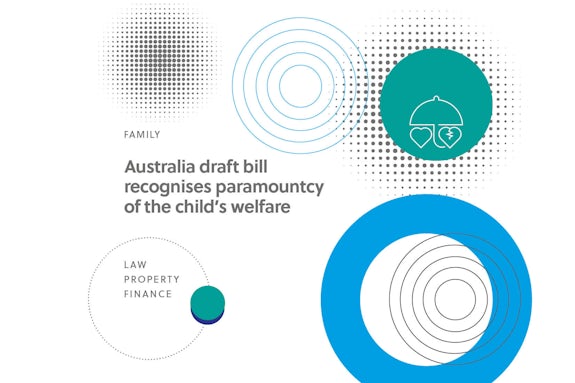
By Sarah Feeney
May 9, 2025

The Labor party in Australia published a draft Bill on 30th January, changing the law in relation to the legal test to determine what the care arrangements should be for children in disputes.
The Bill brings Australian law closer to that of Scotland, and many other legal systems around the world.
The previous approach adopted by the courts in Australia was a presumption of a shared care arrangement for parents. However this presumption has been widely misunderstood which caused prolonged litigation and increased conflict between parents
In addition to a presumption of shared care, parents also had to consult the other parent when making a major decision for their child, such as a medical treatment.
Many separated parents struggle with “unequal” arrangements. There will undoubtedly be many parents who are co-parenting with an ex-partner that will agree with this stance, and feel it is unjust for the other parent to have more time with their child than them. As family lawyers, we can sympathise with this feeling. It is especially difficult early on following a separation where one parent may have moved out of the family home, changing their daily routine with their children in an instant.
A 2019 Australian Law Reform Commission review came to the conclusion however that the presumption of a shared care approach was often leading to outcomes that were inappropriate for the child in question. It was felt that a more child-focused approach was needed.
The new bill looks to remove the current test, and replace it with a simpler child focussed framework including 6 factors to determine what is in a child’s best interests when determining what the best parenting arrangements should be:-
This change in the law brings Australia in much closer alignment with the law in Scotland, which is that when making decision in relation to the care arrangements to a child, the court must have regard the welfare of the child concerned as its paramount consideration.
The draft legislation also introduces a requirement for an independent children’s lawyer to meet directly with children. The change is likely to significantly improve the impact that children’s views have on the decisions that affect their lives, thus ensuring Australia conforms more closely to their obligations as a signatory to the UN Convention on the Rights of the Child (UNCRC).
There are three basic principles to be applied in order to determine what the care arrangements should be for children in court disputes. These principles should be considered together, not in isolation as a delicate balancing exercise is necessary.
These are
This covers a multitude of factors of which there is no statutory checklist but rather there are various relevant factors which can affect a child’s physical, emotional and psychological welfare such as parental care & behaviour.
If you would like further information regarding the topic discussed in this blog, please contact Ed Fitzgerald by email – efitzgeraldy@gilsongray.co.uk, or telephone 0131 285 7842
You can also visit our Family Law Team page for more information here.
The information and opinions contained this blog are for information only. They are not intended to constitute advice and should not be relied upon or considered as a replacement for advice. Before acting on any information contained in this blog, please seek solicitor’s advice from Gilson Gray.

Edward is a solicitor in our Family Law team. Having started his traineeship with Gilson Gray in September 2019 within the Family Team, Edward spent the remainder of his 2-year traineeship specialising in Family Law.